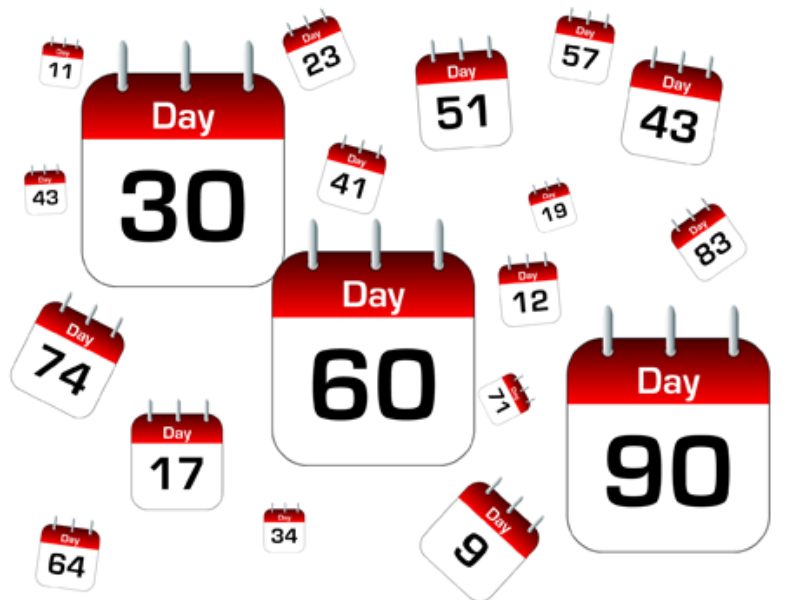Are you sure you know how to prepare for a work interview?
 What you’ll be doing in the first 30-60-90 days
What you’ll be doing in the first 30-60-90 days You have to prepare a work interview on various different levels:
- collection of info on the market, the company, its representatives,
- preparation of “difficult questions”,
- identification of a proposal to set the company apart from the competition,
- etc.
On the internet nowadays you can find some books in Italian as well as guides, articles, check-lists.
I recently posted an article on Linkedin about “difficult questions”: The 50 difficult interview questions.
However, I see evidence of confusion on this topic all the time, even with senior people who have had management roles and have probably been involved in interviewing various people during recruitment and career advancement processes.What is often missing is the overall view of the selection process, for example this now involves numerous interviews with different company staff or their close co-workers (like a work psychologist, a headhunting firm, an external recruiter). Each interview, or step in a recruitment and selection process, corresponds to a routine, as you would say in certain sports (e.g. golf).
That means that the preparation will change based on who the actual interviewer is.
For example – this one’s simple :) – it’s one thing to be interviewed by an HR person but quite another to be interviewed by your future manager or the CEO. The perspectives of different company staff will be as different as their roles.
Let’s see what needs to be done to get ready to answer the question:
What would you do in the first 30-60-90 days if we hired you?
I’ve often helped senior people - preparing for an interview with a multinational - who were asked to prepare a 30 – 60 – 90 day plan at the end of the process.
It might also have happened to you or someone you know? What did you/they do?
It’s a key step in the selection process and will require good listening skills to understand the expectations of the company you are dealing with and the individual representatives. Generally speaking, a briefing will be provided in writing and verbally and there might even be a template you’ll have to use. Unfortunately, you won’t be told the assessment parameters 😊.
But I can give you some tips:
Get ready by reviewing/thinking back to the interviews you have had and the information you collected – formal as well as informal information (impressions, mood, company climate, etc).
Stick to the brief or the task you were set and don’t be shy to ask some questions so you can provide the answers they are hoping to receive.
Have a clear idea about the length, logic sequence and content of the slides in your presentation.
Prepare slides you can talk about so that you can adapt the focus and content “on the spot”.
Prepare some back-up slides or extra info to cover potential questions or a Q&A session.
Repeat the presentation our loud in the language you’ll be delivering it in (it could be English) a few times so that you’re happy it runs smoothly.
See how long it takes you to deliver the whole presentation and the various slides.
The role of GoodGoing!
The cherry on top: use a Career Coach for a session or two to get ready with him/her as a “sparring partner”.
An external point of view can make all the difference.
Remember that the aspects you should consider are not just the "soft" ones (tones, rhythm, language, etc.), you’ll also need to look at the content and the language so it’s worth turning to professionals who know this stuff inside out, like the team at GoodGoing!
